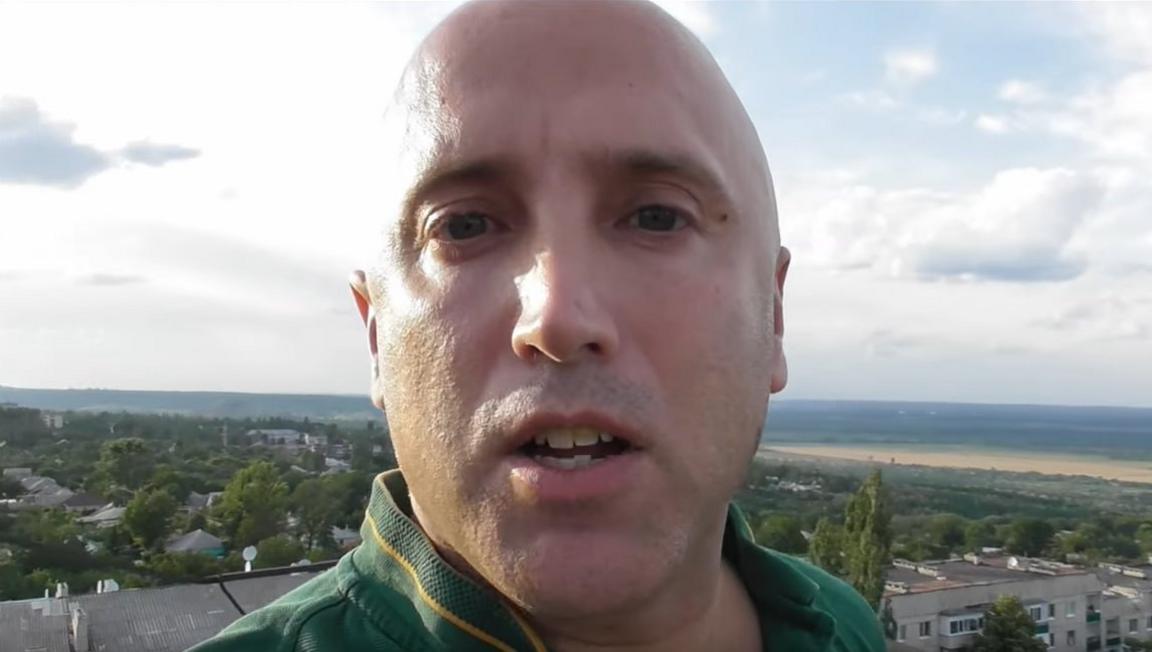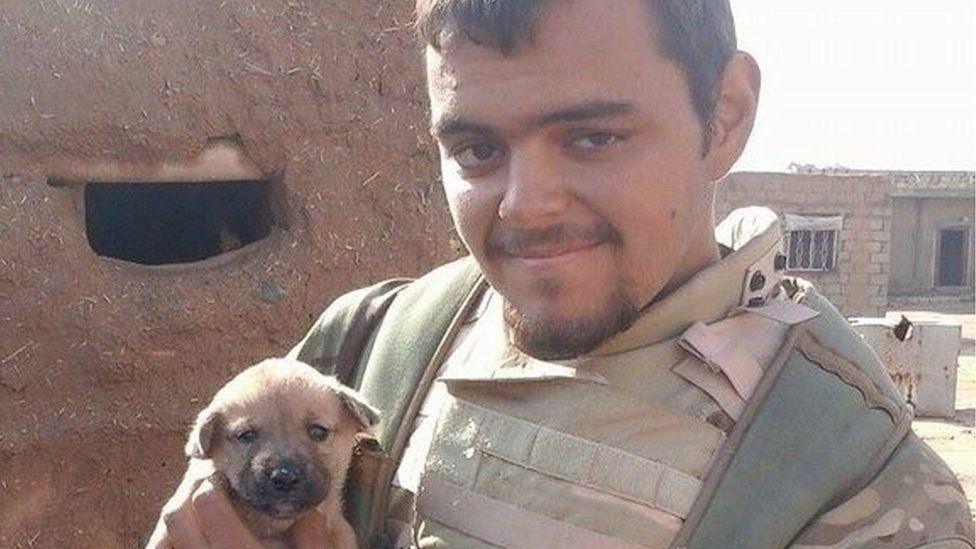YouTuber sanctioned over Russian 'propaganda'
- Published

Mr Phillips has been making videos in Ukraine during the Russian invasion and is currently in the Donbas region
A British YouTuber has been sanctioned by the UK government over claims that he has spread pro-Russian propaganda during its invasion of Ukraine.
Graham Phillips was condemned in April for filming an interview with captured British national Aiden Aslin.
He was banned from Ukraine in 2014, but managed to return to the country shortly after Russian forces launched their invasion in February.
He is one of 42 people named in the latest round of sanctions.
They include leaders of the so-called Donetsk and Luhansk People's Republics and 29 regional governors across Russia.
The move means that Mr Phillips - who says he largely relies on crowdfunding and is currently in the Donbas region of Ukraine - will have his assets frozen in the UK.
He has described himself as an independent journalist and documentary maker who acts with "complete integrity".
But he has been accused of spreading pro-Russian conspiracies and disinformation to his 318,000 subscribers on YouTube for many years.
The UK government said he had "produced and published media content that supports and promotes actions and policies which destabilise Ukraine and undermine or threaten the territorial integrity, sovereignty or independence of Ukraine".
Foreign Secretary Liz Truss said the government would "continue to impose harsh sanctions on those who are trying to legitimise Putin's illegal invasion until Ukraine prevails."
Mr Phillips was accused by an MP of committing a war crime in his interview with Mr Aslin, who was handcuffed and bruised after being taken prisoner by Russian troops while fighting as a Ukrainian Marine in Mariupol.

An MP said that Mr Phillips' interview with Aiden Aslin was a clear breach of the Geneva Convention
Robert Jenrick said the interview was a "flagrant breach of the Geneva Convention" as it had shown Mr Aslin "being interviewed under duress for propaganda purposes".
The 45-minute video showed Mr Phillips claiming Mr Aslin, who has dual UK and Ukraine citizenship, was a "mercenary" rather than a prisoner of war, and telling him he could face the death penalty.
Mr Aslin had been serving in Ukraine's military before Russia invaded. His family said he had moved to Mykolaiv in 2018 where he met his girlfriend.
The video was removed by Youtube, which said it was also preventing Mr Phillips from receiving money from advertisements - although his channel is still available on the platform.
Mr Phillips was born in Nottingham before later moving to Scotland, where he attended Perth High School and studied at Dundee University. He is understood to have been living in London when the Russian invasion started.
He was banned from Ukraine after being arrested while working for Russian state broadcaster RT during the invasion of Crimea in 2014, but was regularly able to film in Russian-held areas of the country after the ban was imposed.
'Showing the truth'
His videos have included suggestions that the Bucha massacre did not happen, with Mr Phillips claiming that he had not seen any "inappropriate actions" towards civilians by Russian forces during his time in the region.
Responding to the announcement that he had now been sanctioned, he told BBC Scotland he would "continue my work, showing the truth from here in Donbas".
He added: "I didn't have any opportunity to defend myself, no-one notified me, there are no real charges against me, just that the British government doesn't like my work, so I'm sanctioned.
"So every journalist in the UK take note, if the British government don't like your work, this can happen to you.
"As for my work, you can say what you will about it, but it is what it is - independent British journalism".
The sanctions are the latest in a wave hitting more than 1,100 individuals and businesses associated with Russian President Vladimir Putin.